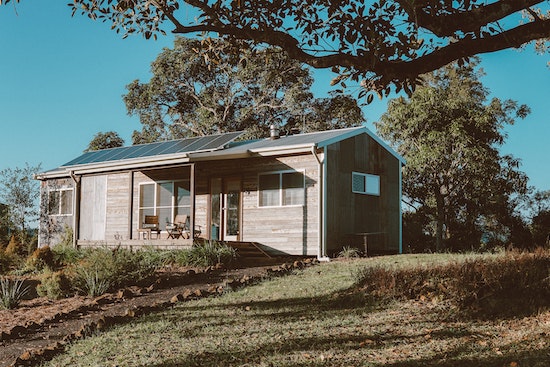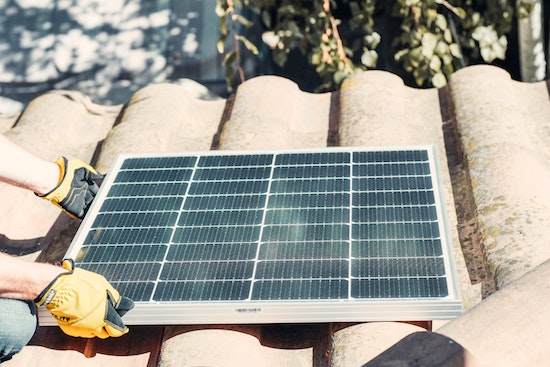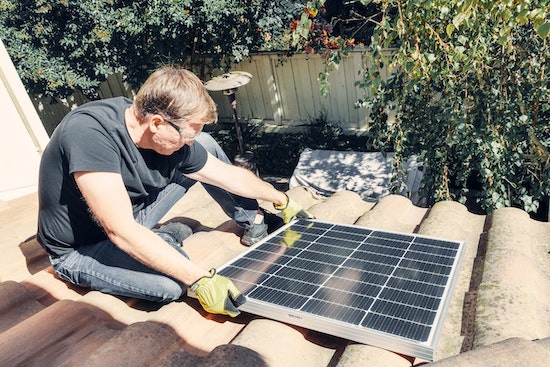
Off Grid Cabin - Become Self Sufficient Today
Are you dreaming of escaping the hustle and bustle of city life and immersing yourself in nature? An off grid cabin might be the perfect solution for you. Living off-grid allows you to disconnect from the modern world and embrace a simpler, self-sufficient lifestyle. In this article, we will explore everything you need to know about off-grid cabins, from what they are to how to build and live in one. So, let's get started!

What is an Off Grid Cabin?
An off grid cabin is a small, self-sustaining dwelling that is not connected to public utilities such as electricity, water, or sewage systems. Instead, it relies on renewable energy sources like solar panels, wind turbines, and rainwater harvesting to meet its energy and water needs. Living off-grid also involves reducing energy consumption and adopting sustainable practices to minimize the cabin's environmental impact.
The allure of off-grid living lies in its simplicity and the chance to reconnect with nature. It offers an escape from the noise and pollution of urban areas, providing a serene environment where you can enjoy clean air, starry skies, and the beauty of the wilderness. Moreover, living off-grid encourages self-reliance and resourcefulness, as you learn to make the most of the available natural resources.
Energy Solutions to Off Grid Cabin

Off grid cabins, which are located in remote areas or in areas that are not serviced by the main power grid, require a reliable source of energy to meet the needs of the occupants. One of the most popular solutions to this problem is a solar generator.
A solar generator is a clean and sustainable energy system that generates electricity from sunlight through photovoltaic panels. It captures and stores energy during the day, allowing you to use it at any time.
One of the reasons why solar generators are the most popular energy solution for off grid cabins is their affordability. They are relatively cheap compared to other alternatives and can be purchased in different sizes to suit different needs. They also require minimal maintenance and can last for many years with proper care.
Another advantage of solar generators is their environmental friendliness. They generate clean and sustainable energy, which is in line with the world's efforts to reduce carbon emissions and reverse climate change. By using a solar generator, you can reduce your carbon footprint and contribute to a cleaner and healthier environment.
How to Build a Solar Powered Off Grid Cabin?
Building a solar-powered off-grid cabin is an exciting and sustainable venture that allows you to enjoy the freedom of living in harmony with nature. Embracing renewable energy sources like solar power not only reduces your environmental impact but also grants you self-sufficiency and independence from traditional utility grids. In this section, we will take you through the steps to create your solar-powered off-grid haven. Let's get started!
- Plan Your Off-Grid Cabin
Before embarking on your solar-powered cabin project, thorough planning is essential. Define your goals, the cabin's size, and its energy requirements. Assess your location for optimal sunlight exposure, ensuring your solar panels receive ample sunlight throughout the day.
- Design an Energy-Efficient Cabin
Design an energy-efficient cabin to reduce power consumption. Incorporate passive solar design principles, such as large south-facing windows to maximize natural light and heat during colder months. Utilize well-insulated walls, roofs, and floors to maintain a comfortable interior temperature.
- Calculate Your Energy Needs
Determine your energy needs based on the appliances and electronics you'll be using in your off-grid cabin. Calculate the wattage and daily usage of each item to size your solar power system correctly.
- Choose High-Quality Solar Panels
Invest in high-quality solar panels to ensure maximum energy generation. Monocrystalline or polycrystalline solar panels are common choices for off-grid applications due to their efficiency and durability.

The Anker 531 Solar Panels stand out among its competitors with its exceptional quality and outstanding features. With its adjustable kickstand, you can optimize your solar power by adjusting it seamlessly to 40°, 50°, or 60°. The panel's IP67 waterproof protection enables it to withstand harsh weather and adventurous activities. Additionally, its monocrystalline solar cells and sunlight-trapping surface provide a conversion efficiency rate of up to 23%, ensuring that you get the most out of the solar panel. Moreover, with its compact and foldable design, it is conveniently portable and perfect for on-the-go charging.
- Select a Battery Storage System
Pair your solar panels with a reliable battery storage system. Batteries store excess energy generated during sunny days for use during cloudy periods or at night. Lithium-ion batteries are a popular choice for their longevity and efficiency.
The Anker SOLIX F2000 boasts our proprietary InfiniPower™ technology that delivers long-lasting power with 2048Wh capacity. Its GaNPrime™ fast charging system enables speedy on-the-go charging. Furthermore, the 1000W solar input and durable design make it an excellent option for off grid activities. Additionally, it provides 2400W of power with four AC outlets, two car outlets, three USB-C charging ports, and two USB-A charging ports, making it possible to power up to 12 devices at once. Furthermore, it features an exclusive RV port, which is a great addition for those who want to live in their cabin full time.
- Wire the System Safely
Hire a professional electrician to wire your solar power system safely. Electrical expertise is crucial to prevent accidents and optimize the system's performance.
- Install Energy-Efficient Appliances
Equip your off-grid cabin with energy-efficient appliances and lighting. Choose LED bulbs and energy-efficient appliances to minimize power consumption and prolong battery life.
- Optimize Energy Usage
Be mindful of your energy usage. Turn off lights and appliances when not in use, and consider using manual tools or traditional methods whenever possible to lessen your reliance on electricity.
- Enjoy Your Solar-Powered Off-Grid Living
Congratulations! You've successfully built a solar-powered off-grid cabin. Now, relish the freedom, tranquility, and self-reliance that come with living in harmony with nature.
Conclusion
Living in an off grid cabin is an extraordinary adventure that allows you to reconnect with nature, adopt a sustainable lifestyle, and experience true self-sufficiency. From selecting the perfect location to harnessing renewable energy, every aspect of off-grid living contributes to a fulfilling and eco-conscious existence.
Frequently Asked Questions About Off Grid Cabin
Below are the common questions most people have about the subject matter of off grid cabin solar generators—
How Many Solar Panels Do I Need for an Off-Grid Cabin?
The power requirement depends on the size of your homestead. But for example, if your average power requirement is around 350 watts, then the recommended number of solar panels is about 20.
Can I Run Off-Grid with Solar Panels?
Yes, it is possible to run off-grid with solar panels. Solar panels are a great alternative to traditional grid power, providing a clean and sustainable source of energy. With the right solar panel system, you can produce enough energy to power your home or off-grid cabin. The key is to calculate your energy needs and design a solar system that can meet those needs.
What are the Disadvantages of Off-Grid Solar System?
While off-grid solar systems have numerous benefits, such as providing energy independence and reducing electricity bills, they also come with several disadvantages. One of the main drawbacks is the initial cost of installation, which can be quite high. Additionally, off-grid systems require regular maintenance and upkeep to ensure optimal performance, which can be time-consuming and costly. Another disadvantage is the need for backup energy sources, such as a generator, during extended periods of low sunlight or inclement weather. Despite these drawbacks, off-grid solar systems can still be a viable option for those seeking a sustainable and self-sufficient lifestyle.
Be the First to Know
Save Up to 30% Off
Already signed up? Log in here.



